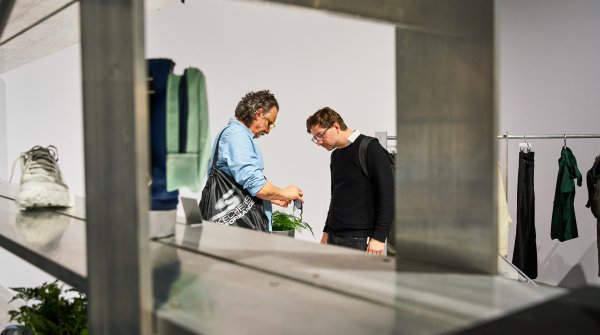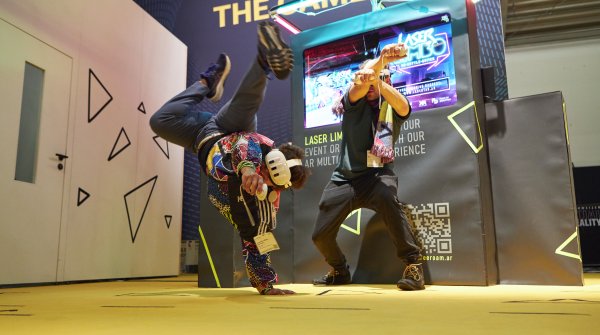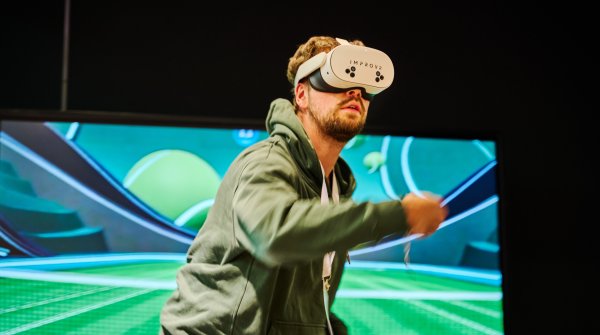- eSports conquers the world
- Dream job professional video gamer
- The way to the top of eSports is rocky
- Talent scouts for organizations and professional clubs
- Training requirements like in other sports as well
- Own performance centers of the big players
- The best eSports games and the example of Fifa
- Young talent: eSports also requires sacrifices
- Asia: Pioneer in promoting young talent
- Germany needs professional organization of all performance levels
Especially among the younger generation, eSports, i.e. the professional playing of video games, is very popular. Many young people see their idols playing for a lot of money at eSports events, both offline and online, which are held regularly by the various organizers. At the first Fortnite World Championship, for example, around 2.3 million people watched the final in the solo competition via Twitch and YouTube. The winner, Kyle "Bugha" Giersdorf, received prize money of three million US dollars. For qualifying alone, each of the 100 players received 50,000 US dollars.
Young people all over the world now dream of earning their money playing video games. However, simply playing games is no longer enough to make it into the circle of the best. Those who neither perform nor stand out have little chance of playing video games professionally and being able to call this their work. Only a few gamers around the world can make a living from it in the long term, even though there are now very successful gamers.
There are eSports associations, organizations, eSports departments of real professional clubs or academies where aspiring eSports players are educated and trained. Examples are: FOKUS, WAVE, PENTA, Schalke 04, Unicorns of Love and many, many more. The risk of not making it is of course high, possibly even higher than in other sports, especially since the prize money as a living is only enough for the absolute top. The road there is full of hurdles. It takes a lot of work and a lot of time to first make it into a professional team, to be better supported and to develop. eSportsman Fabian "Exileh" Schubert tells in an interview with Kicker: "We spend eight hours a day on scrims and meetings." Many eSportsmen* like Fabian, who plays League of Legends, use the free time for further training to become even better. There is rarely time for other activities. A basic requirement for anyone who wants to become an eSportsman. Support from organizations, a good network and an adjustment of the daily structure will also be necessary to make it to the top.
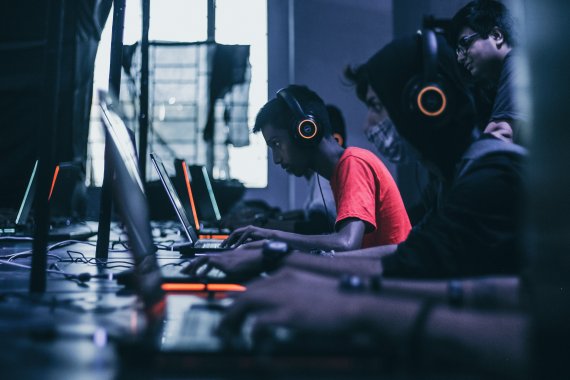
Talent scouts pick out the best talents, who are then promoted and given contracts. Those who have made it into professional clubs or organizations have already overcome a major hurdle and have a certain amount of financial security through contracts.
With various methods and training sessions, there are ways and means to shape talents into top stars. In the training sessions, depending on whether alone or in a team, strategies and plans are developed, communication is practiced and training against other eSports teams takes place. To compensate for the high screen time, most eSports players prefer weight training or the pursuit of hobbies.
Training with each other, with one's team members, and training against other top teams, as well as customized training plans for each individual, are possibilities that professional clubs have to offer. There are also so-called boot camps, i.e. training camps with exclusive coaching from professionals. A lot of attention is also paid to health and balancing screen time so that players* can perform at their best. "Exileh" reports that he either goes to the gym or jogs to get the necessary balance.
Depending on their size, popularity, status in the eSports scene, marketing and resources, the organizations and clubs have their own premises, special performance centers, coaches and, above all, the best players. The set-up is particularly important. Organizations provide their players with monitors, PCs, a good Internet connection and other high-quality equipment.
As in other sports, different organizations have different levels of success. Among the top organizations are Liquid, OG, Evil Geniuses, Team Spirit, Virtus.pro. They present themselves in several games and are currently at the top. They offer the best conditions for a successful career in eSports and, accordingly, are also of great importance for the next generation.
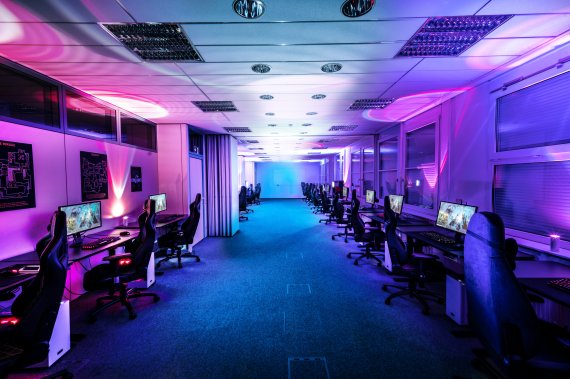
Popular games in eSports include Dota 2, League of Legends, Fifa, Fortnite, Counter Strike and PUBG. In addition, there are others in which eSports competitions take place and in which up-and-coming players can try to become eSports players. Dota 2 is the game that has paid out the most prize money of all time, at around 235 million US dollars. However, a lot depends on how much the game developers provide as prize money or whether additional prize money is generated through sponsorship deals. Currently, the prize money comes mainly from the game developers.
Professional soccer clubs are represented in eSports in Fifa. In Germany, the Bundesliga and the Cup are held every year, analogous to real soccer. Leading clubs in the eSports world of soccer in Germany are RB Leipzig, Schalke 04, 1 FC Cologne and VfL Wolfsburg. And the best Fifa player in the world at the moment also comes from Germany: Umut "Umut" Gültekin from the RB Leipzig eSports team is the current Fifa world champion and has already managed to bring in 250,000 US dollars at the age of just 19. An example of where the path for young talent can lead.
As in other sports, the gaming scene is no different: if you want to reach the top, you have to make sacrifices. Among other things, children, or rather young people, move to exclusive junior performance centers of organizations for several weeks in order to raise their performance to a higher level. Lion "Lyght" Krause, who was 13 at the time, prepared for the 2019 Fortnite World Championships in New York at one of these centers, for which he qualified as one of 100 players worldwide in the solo event. Special coaches look after the young players during this time.
Worldwide, the promotion of eSports is on the rise. Especially in Asia, the gaming scene is one of the most popular pastimes. Logically, most video games come from Asia, as do many of the top players. In Germany, however, the eSports scene and the promotion of young players is still lagging behind. Only a few Germans have been able to hold their own in the international arena in the long term, which indicates that the development of eSports in Germany is far from complete.
The promotion of young talent suffers above all from the fact that it only really starts at the organized level. It doesn't really start until a talent joins an organization. Before that, it's a matter of playing and training hard and performing in tournaments or events and hoping that you'll be scouted and get a contract so that you'll be financially more secure. Prize money is only enough for living expenses at the top, so a team has to pay for young players in advance. The more prize money that is paid out to more players, the more relevant eSports would become for young talent and for a professional career.
Another possibility would be to start promoting young players earlier, so that more players can fulfill their dream of playing professionally. Increased attention would also help eSports become more than just a fringe sport and catch up with popular sports. The performances of the top players are on a very high level and can definitely be compared to those in other sports. But, as in soccer, for example, only the best of the best will make it in the end.
Author: Moritz Schmidt
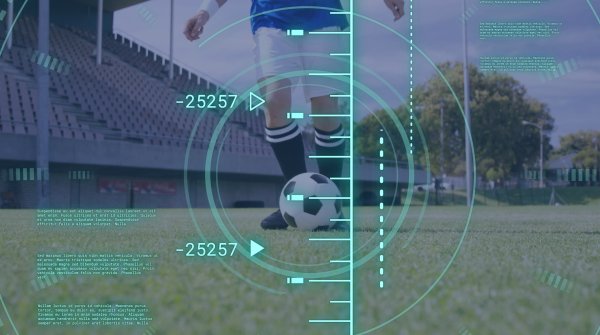 SportsTechUnlocking the Future of Sports with AI
SportsTechUnlocking the Future of Sports with AI
- ISPO awards
- Mountain sports
- Bike
- Design
- Retail
- Fitness
- Health
- ISPO Job Market
- ISPO Munich
- ISPO Shanghai
- Running
- Brands
- Sustainability
- Olympia
- OutDoor
- Promotion
- Sports Business
- ISPO Textrends
- Triathlon
- Water sports
- Winter sports
- eSports
- SportsTech
- OutDoor by ISPO
- Heroes
- Transformation
- Sport Fashion
- Urban Culture
- Challenges of a CEO
- Trade fairs
- Sports
- Find the Balance
- Product reviews
- Newsletter Exclusive Area
- Magazine



